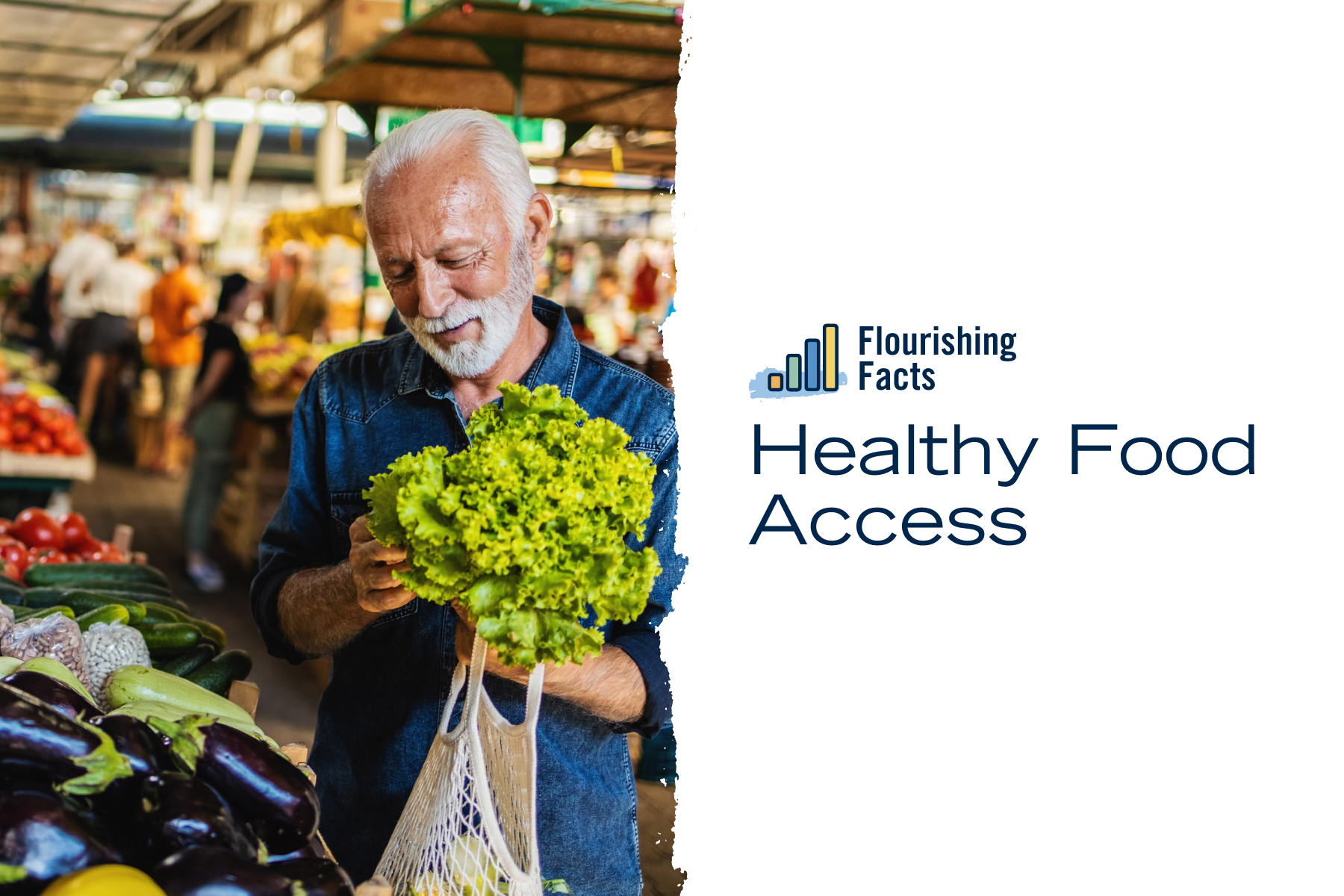Flourishing Facts – Healthy Food Access
Why is healthy food access important?
As winter makes its exit, gardeners have started nurturing tiny tomato and pepper seedlings, dreaming of summertime harvests. But not everyone has the luxury of a garden or even easy access to fresh produce. Food insecurity is one of our region’s challenges – having food to eat is a critical need. But healthy food access goes one step beyond filling plates – it’s about ensuring quality, nutrient-packed, fresh food is within reach for everyone. In our region, many miss out on the health benefits of a vibrant diet rich in fruits and vegetables. According to the 2021 Greater Evansville Health Survey, nearly 1 in 4 residents, 23% of the region, wants to but is unable to purchase fresh fruits and vegetables. With 6% of households without vehicles, 24% burdened by their housing costs alone, 12% living below the poverty line, and another 37% of ALICE households (Asset Limited Income Constrained Employed) grappling to make ends meet, healthy food for all can feel like a distant dream.
The cost of nutritious foods and how far you live from stores where healthy foods are likely to be offered can be significant barriers. “Low food access” and “food desert” data helps communities begin to understand these barriers.


*See SAVI: Healthy Food Access data profile for Vanderburgh, Warrick, Gibson, and Posey, IN, (Henderson not available).
There are pockets of inner-city Evansville and rural areas where up to 100% of the population lives in a food desert. Welborn Baptist Foundation, along with nonprofits, collaborations, and community partners, are working to better understand the barriers and opportunities. Innovative solutions for reducing transportation barriers, empowering local growers, and implementing bulk-buying programs, pop-up markets, and other strategies can help our region cultivate a future where healthy food isn’t a privilege but a right for all.
Find more data on food access and related issues
Here are quick links to Grow/SAVI resources to help you learn more about how issues around food impact the people you serve and care about.
- Basic Needs Topic Profile – healthy food access, transportation access, and other regional insights.
- Community Profile Tool – data for specific geographies, like counties, zip codes, and neighborhoods. (Pro tip: not all data is available for small geographies, like neighborhoods. If you run into missing data, try a slightly larger area, like the zip code that encompasses the neighborhood.)
Grow Library – for additional learning resources on healthy food access, poverty, flourishing, and more.
Let’s sow seeds of change together! Share your data insights with colleagues, community partners, and on social media.
